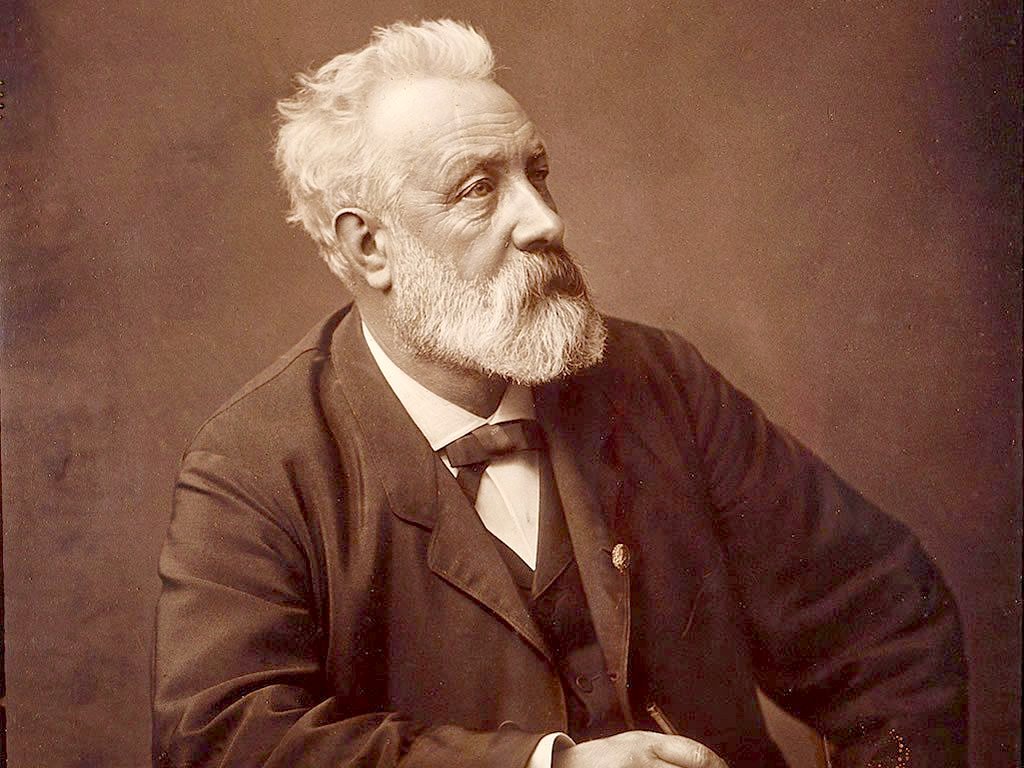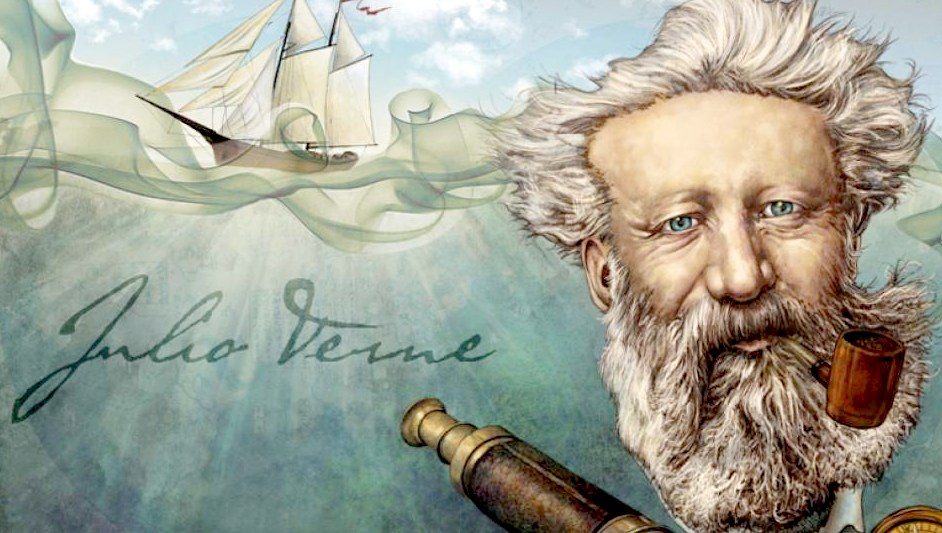|
JULES VERNE - THE PROPHET
Please use our A-Z INDEX to navigate this site or return HOME
|
|
|
What a wonderful imagination the French writer had. He was also a practical mariner, gaining much of his material from his travels, just like Herman Melville, for his Moby Dick. Jules Verne is best known for '20,000 Leagues Under the Sea' and Around The World In Eighty Days. But he also authored a number of other popular novels, that made it onto the big screen, such as 'The Mysterious Island,' and 'Journey To The Centre Of The World.'
PROPHETIC SCIENCE FACTION
The relationship between Verne's Voyages extraordinaires and the literary genre science fiction is a complex one. Verne, like H. G. Wells, is frequently cited as one of the founders of the genre, and his profound influence on its development is indisputable; however, many earlier writers, such as Lucian of Samosata, Voltaire, and Mary Shelley, have also been cited as creators of science fiction, an unavoidable ambiguity arising from the vague definition and history of the genre.
As with science fiction, Verne himself flatly denied that he was a futuristic prophet, saying that any connection between scientific developments and his work was "mere coincidence" and attributing his indisputable scientific accuracy to his extensive research: "even before I began writing stories, I always took numerous notes out of every book, newspaper, magazine, or scientific report that I came across."
Our view is that if a writer has a firm grasp of technology, then with an innovative mind and a bit of research, he or she is bound to come up with inventions that are to come, but that as with the advances of mankind, they are slow in the coming. The only time technology advances at a pace, is during war, to gain advantage against an enemy, or other crisis, when adaptation is necessary to survive.
THE FATHER OF SCIENCE FICTION
Jules Verne
hit his stride as a writer after meeting publisher Pierre-Jules
Hetzel, who nurtured many of the works that would comprise the author's Voyages
Extraordinaires.
CLASSIC WORKS - Jules Verne is best known for 20,000 leagues Under the Sea and Around the World in Eighty Days, both of which became Hollywood classics. Jules Verne was and still remains one of the best-renowned science fiction authors. His books were decades and even centuries ahead of their time, and while the initial reception to some of his books may have been muted they have nevertheless continued to amaze many as well as influence scientific discourse and debates. He remains unparalleled when it comes to science fiction and here are some of his top books.
Jules Verne was the author of many adventure stories:
1
Twenty Thousand Leagues Under the Sea
9
Round the Moon (Extraordinary Voyages, #7)
Many people have used the eighty day target set by Jules Verne as the goalposts for their technology projects having been inspired by the famous French author. We are likewise enthused.
|
|
|
..
|
|
|
NOVELIST INDEX A - Z
JULES VERNE LINKS & REFERENCE
https://www.jules-verne.co.uk/
|
|
|
Please use our A-Z INDEX to navigate this site or return HOME
This website is Copyright © 2021 Jameson Hunter Ltd
|

